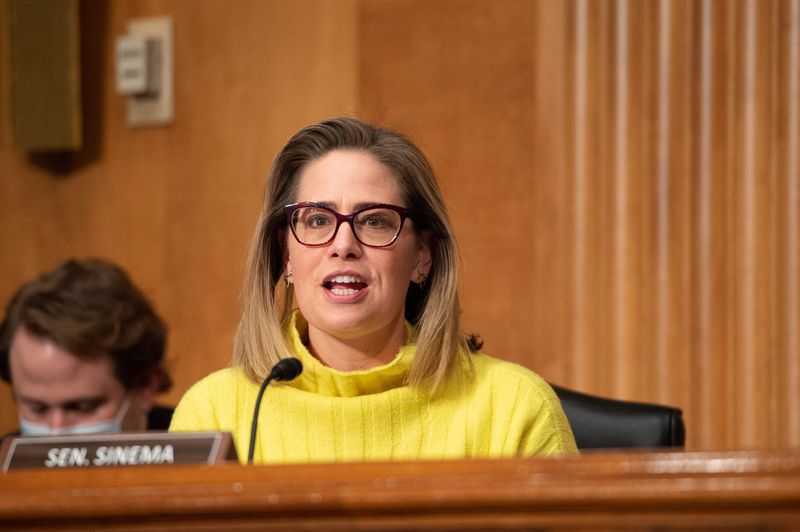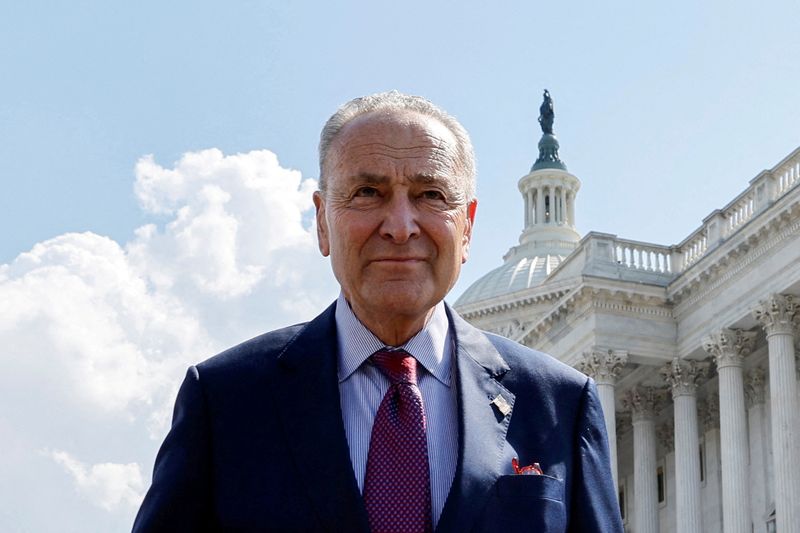By Scott Malone
WASHINGTON (Reuters) -Democratic U.S. Senator Kyrsten Sinema said on Thursday she agreed to "move forward" on a $430 billion drug pricing, energy and tax bill, subject to a Senate arbiter's approval of the bill, which Democrats intend to pass over Republican objections.
Senate Majority Leader Chuck Schumer said earlier on Thursday the chamber would convene on Saturday to vote on a motion to proceed and then begin debate on the bill.
The bill known as the Inflation Reduction Act, introduced last week by Schumer and Democratic Senator Joe Manchin, is a key priority for Democrats and President Joe Biden ahead of November's election battle for control of the U.S. Congress.
The act will help people save money on prescription drugs and health premiums, Biden said in a statement on Thursday.
"It will make our tax system more fair by making corporations pay a minimum tax," he said.
With the 100-seat Senate split 50-50, Democrats plan to pass the bill without Republican support through a parliamentary process known as reconciliation.
But they cannot afford to lose support from a single lawmaker. Sinema's agreement was a critical breakthrough. Another worry is COVID-19 - senators can only vote in person, so Schumer will need his full caucus to be present and healthy to pass the measure if Republicans remain unified in opposition.
Sinema said she had reached an agreement with other Democrats to remove a provision that would impose new taxes on carried interest. Without the provision, private equity and hedge fund financiers can continue to pay the lower capital gains tax rate on much of their income, instead of the higher income tax rate paid by wage-earners.
She cautioned that her agreement to "move forward" was subject to the review of the Senate parliamentarian. The parliamentarian has to approve the contents of the bill to allow it to move forward through the "reconciliation" process that Democrats plan to use to bypass the chamber's normal rules requiring 60 Senators to agree to advance most legislation.

Schumer, in a statement, said, he believed he now had the votes to pass the bill.
"The agreement preserves the major components of the Inflation Reduction Act, including reducing prescription drug costs, fighting climate change, closing tax loopholes exploited by big corporations and the wealthy, and reducing the deficit by $300 billion," Schumer said.
